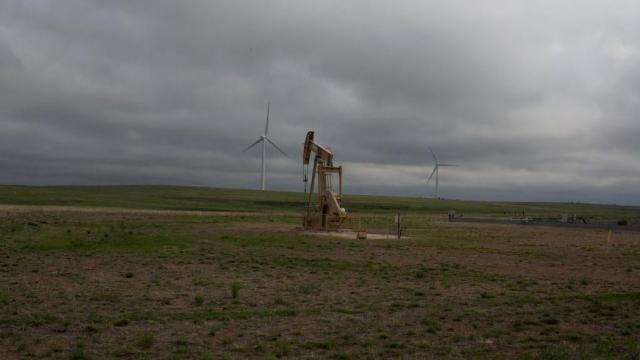We know for a fact that fracking sucks for people and literally poisons the area where it occurs. So many of us have seen terrifying videos of rivers and other bodies of water on fire, and reports of seemingly healthy people suddenly plagued with headaches, random nosebleeds, and rashes. Now, a new study has linked fracking to premature deaths of people who live nearby this dirty fossil fuel extraction process.
Researchers from the Harvard T.H. Chan School of Public Health have connected premature deaths for elderly populations living near or downwind unconventional oil and gas development (referred to as UOGD) involving extraction methods including fracking.
“Although UOGD is a major industrial activity in the U.S., very little is known about its public health impacts. Our study is the first to link mortality to UOGD-related air pollutant exposures,” Petros Koutrakis, professor of environmental sciences and senior author of the study, said in a press release.
The study’s researchers looked at a cohort of more than 15 million Medicare beneficiaries — people who are 65 years old or older — who lived near areas with unconventional oil and gas development from 2001 to 2015. They analysed data from more than 2 million oil and gas wells and connected that to the zip codes of the medicare beneficiaries to conclude that senior citizens living close to fracking wells were 2.5% more likely to die prematurely.
It’s unclear which health issues are specifically causing premature deaths in the population included in the study, but the researchers single out airborne contaminants as a likely factor. Prior research has found that fracking can turn nearby water radioactive, leak carcinogenic pollutants into the air and water, and living near oil wells will raise blood pressure along with decreasing lung function over time — all of which can be linked to premature deaths for people living near oil wells.
Fracking in’t just a threat to people who live near wells — the larger climate impacts of fracking are a threat to the broader public health as well. Fracking wells emit methane, a greenhouse gas that’s about 80 times more potent than carbon dioxide. Fracking is also associated with increasing ozone pollution in Texas which can worsen asthma rates for children and senior citizens. In the latest IPCC report that was published last year, scientists said that methane emissions in the atmosphere are at their highest levels in hundreds of thousands of years. We have to start phasing out these fracking sites as soon as possible, not continue drilling.
A little under 3% of senior citizens may not seem like a huge number on its own, but there are other age groups around them being exposed to the same toxicity caused by fracking as well. More than 17 million people live less than a mile away from an active well and though it’s described as an “unconventional” form of oil and gas development, fracking has become one of the most common forms of oil and gas development in the U.S. The risk that fracking poses to vulnerable populations isn’t worth the social cost.
Editor’s Note: Release dates within this article are based in the U.S., but will be updated with local Australian dates as soon as we know more.
